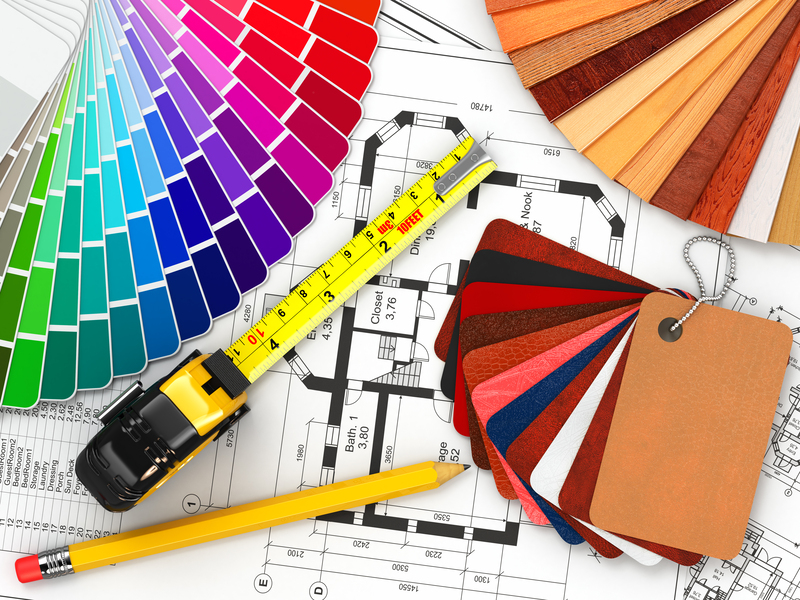Expert Hands for Grand Moves: The Importance of Professional Piano Movers
Posted on 11/06/2025
Expert Hands for Grand Moves: The Importance of Professional Piano Movers
Moving a piano is a task that goes far beyond just packing and shipping: it's a symphony of precision, care, and expertise. A piano, whether an upright or a grand, isn't just a musical instrument - it's a substantial investment, a family heirloom, and in many cases, the centerpiece of a home or performance space. If you're planning to relocate your beloved piano, understanding the unmatched importance of professional piano movers can save you from heartache, financial loss, and unnecessary stress. In this comprehensive guide, we will delve into why trusting your valuable instrument to specialist piano movers is a choice you won't regret.
Why Moving a Piano Is No Ordinary Task
At first glance, pianos may seem robust and unyielding. Yet, concealed behind their elegant exteriors lies extraordinary complexity - intricate mechanisms, delicate strings, and finely adjusted components. Transporting a piano is a highly specialized job calling for experienced piano moving professionals trained in handling these majestic instruments.
The Anatomy of a Piano: Why Expertise Is Crucial
- Weight and Dimensions: Grand pianos can weigh up to 1,200 pounds (545 kg), while upright pianos typically range between 300-500 pounds (135-225 kg).
- Delicate Mechanisms: A standard piano features over 10,000 moving parts, each contributing to its unique touch and sound.
- Unsuspected Fragility: An exterior bump, a sudden jolt, or undue pressure could seriously damage tuning pins, soundboards, or the critical action mechanism.
Common Risks of DIY Piano Moving
Whether out of budget constraints or an underestimation of the challenge, some individuals attempt to move pianos without professional assistance. This path, however, is fraught with serious risks:
- Physical Injury: Pianos are unwieldy; improper handling can lead to severe back, hand, or foot injuries.
- Instrument Damage: Even a minor slip could break crucial components, leading to costly repairs.
- Structural Damage: Scuffs, scrapes, and gouges to floors, walls, or staircases are common when moving heavy instruments awkwardly through tight spaces.
- Loss of Sound Quality: Exposure to rough treatment can affect a piano's tone and longevity.

The Benefits of Hiring Professional Piano Movers
Let's explore why prudent piano owners consistently choose expert piano moving services for safe and worry-free relocations:
1. Specialized Equipment and Tools
- Piano Skids and Sliders: To distribute weight and reduce stress on fragile legs and frames.
- Moving Straps and Harnesses: Ensuring security and balance while lifting and maneuvering.
- Padded Covers and Blankets: To protect the finish and internal mechanisms during transit.
- Proper Dollies and Ramps: For smooth transitions across surfaces and up or down stairs.
2. Trained Personnel with Experience
Professional piano movers undergo rigorous training and have vast experience navigating a myriad of scenarios - from tight corners in historic homes to multi-floor buildings. Their expert technique minimizes risk to the instrument and environment alike.
3. Insurance and Liability Coverage
Reputable piano moving companies are fully insured. Should the unthinkable happen, your precious instrument is protected. This peace of mind simply cannot be guaranteed when relying on amateurs or friends.
4. Customized Moving Plans
- Site Assessment: Professionals perform a walkthrough to assess the best route and anticipate potential challenges.
- Handling Unique Pianos: Each instrument, from baby grands to antiques, is approached with a tailor-made strategy.
- Climate-Controlled Transport: Protects wood and strings from temperature and humidity fluctuations during transit.
5. Comprehensive Aftercare
Expert piano movers ensure your instrument arrives intact at your new location, ready for use. Many also offer recommendations for post-move tuning and maintenance, safeguarding its longevity and sound quality.
Comparing Professional Piano Movers with General Movers
While standard moving companies may boast experience with furniture and household items, specialist piano relocation services offer unmatched advantages:
- Unique Skillset: Knowledge of piano anatomy and proper disassembly/reassembly distinguishes professionals from generic movers.
- Precise Handling: From minute adjustments to careful wrapping, expert movers deliver meticulous attention to detail.
- Dedicated Equipment: Only piano specialists use the right tools designed specifically for moving these instruments.
- Enhanced Safety Standards: Trained teams reduce risk of personal injury, instrument damage, and property loss.
Understanding the Professional Piano Moving Process
What sets professional piano moving services apart is a seamless process designed to maximize safety and efficiency:
1. Initial Consultation and Assessment
The move begins with a detailed consultation. Movers assess the piano's make and model, access points, stairs, and potential obstacles. Customized strategies are developed in advance for a smooth operation.
2. Preparations and Protective Measures
- Piano Disassembly: If needed, parts such as legs, pedals, or music stands are removed or secured.
- Cushioning and Wrapping: The instrument is enveloped in heavy-duty blankets, foam, or shrink wrap to prevent bumps and scratches.
3. Lifting and Navigation Techniques
Piano moving experts use specialized skids and harnesses, and employ proven lifting postures and movements. Whether facing spiral staircases or narrow doorways, they navigate with confidence and skill.
4. Secure Transportation
Vehicles are equipped with climate controls and anti-slip systems. Instruments are anchored safely to prevent shifting during transit, regardless of distance.
5. Delivery and Reassembly
- Precise Placement: Movers take cues from your wishes, ensuring the piano is optimally positioned in its new environment.
- Reassembly: Any disassembled components are expertly reattached by trained hands.
6. Post-Move Support
Many providers offer tuning services or can connect you with local tuning experts, so your instrument continues to perform at its best.
Types of Pianos and Their Specific Moving Needs
Not all pianos are created equal. Understanding your instrument's pitfalls and requirements is vital:
- Grand and Baby Grand Pianos: Their wide frames and heavy lids require disassembly and special crating. Extra care must be taken with the legs and pedals.
- Upright Pianos: Although more compact, their vertical weight distribution makes them top-heavy. Navigating stairs requires careful calculation and steady handling.
- Console and Spinet Pianos: While lighter, their fine components and delicate cabinetry still benefit from specialist movement.
- Antique or Custom Pianos: Older models may be fragile, with brittle finishes or loose joints. Custom-crafted models may not fit standard moving templates, necessitating advanced skill and foresight.
Case Studies: Why Amateur Moves Go Wrong
- Case 1: The Damaged Grand: An untrained team attempted to move a grand piano up a flight of stairs. A weakened leg snapped, causing a cascade of internal damage costing thousands to repair.
- Case 2: The Insurance Oversight: A homeowner's insurance policy didn't cover a DIY piano moving mishap, leading to out-of-pocket costs for both property and instrument damage.
- Case 3: The Injury: An individual sustained serious back injuries while attempting to lift an upright piano with inadequate help, resulting in both medical expenses and a damaged instrument.
How to Choose the Right Piano Mover for You
With so much at stake, selecting the right piano moving company is paramount. Here's what to consider:
- Experience and Reputation: Look for movers with a long track record and glowing testimonials from satisfied clients.
- Specialization: Ensure the company focuses on pianos, not just general furniture moving.
- Insurance and Licensing: A legitimate operator should be licensed and insured for peace of mind.
- Transparent Pricing: Obtain detailed quotes and avoid hidden fees.
- Customer Service: Clear communication and professional demeanor foster trust.

Frequently Asked Questions About Piano Moving
- Q: Can I move my piano by myself with a few friends?
- It is highly discouraged. Without proper knowledge, equipment, and insurance, you risk serious injury and irreversible instrument damage.
- Q: How much does it cost to hire professional piano movers?
- Costs vary based on piano type, distance, and logistical challenges. Investing in professional movers protects your instrument and avoids far costlier repairs or replacement.
- Q: How should I prepare my piano for moving day?
- Professional movers will guide you. Typically, remove loose items (such as sheet music) and secure the lid, but let expert movers handle disassembly and packing.
- Q: Will my piano need tuning after the move?
- Most pianos require tuning after relocation. Temperature/humidity changes and movement can cause minor detuning. Consult a professional tuner after your move.
- Q: What if my piano has to move through tight spaces or up multiple stories?
- Experienced piano moving specialists excel in overcoming challenging logistics. They create customized strategies for even the toughest moves.
The Value of Professional Piano Movers: More Than Just Transportation
Piano moving is a fine art. Entrusting your cherished instrument to expert piano relocation teams preserves its appearance, sound, and sentimental value. With the help of professional piano movers you're not just moving a musical object - you're safeguarding history, artistry, and irreplaceable memories.
In a world where DIY solutions often tempt, the wise piano owner recognizes the crucial difference that specialized skill, care, and commitment make. Whether you're moving a concert grand across the city or an upright to a new room, let expert hands orchestrate your grand move.
Trust the Experts for Your Next Piano Move
Ready to relocate your piano? Don't take unnecessary risks. Choose a reputable, insured professional with a proven track record. When it comes to the grand art of piano moving, experience isn't just better - it's essential!
